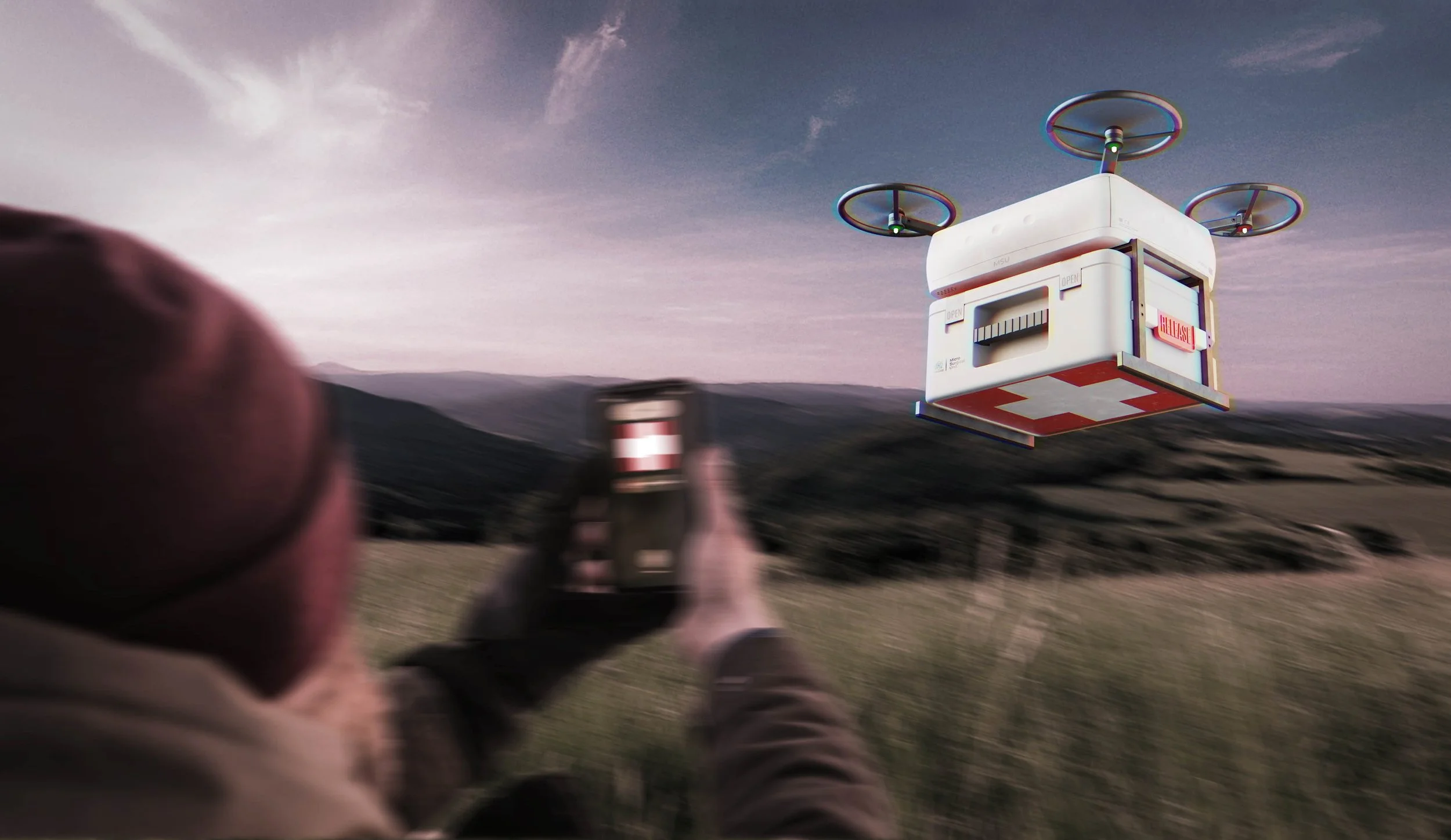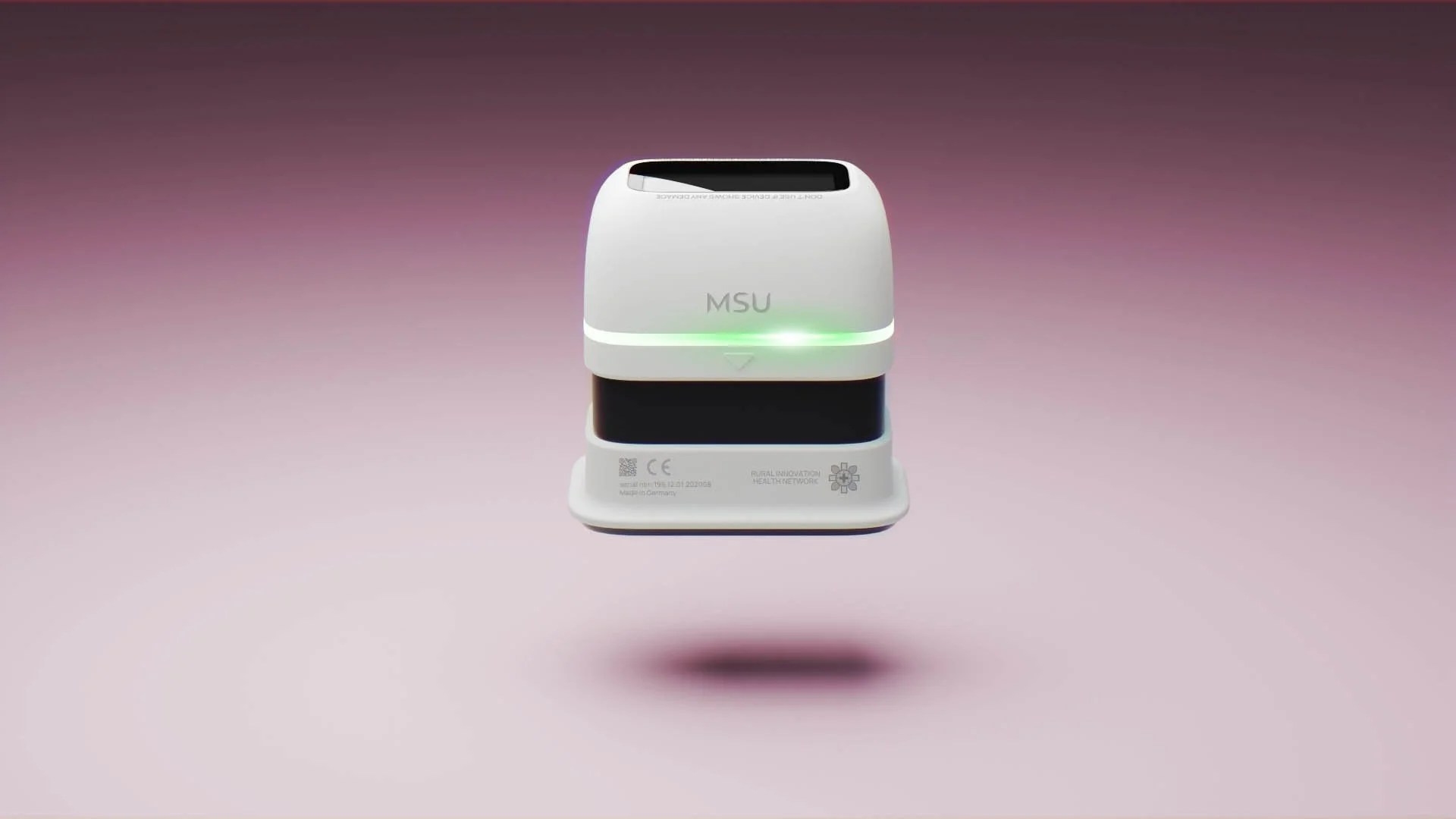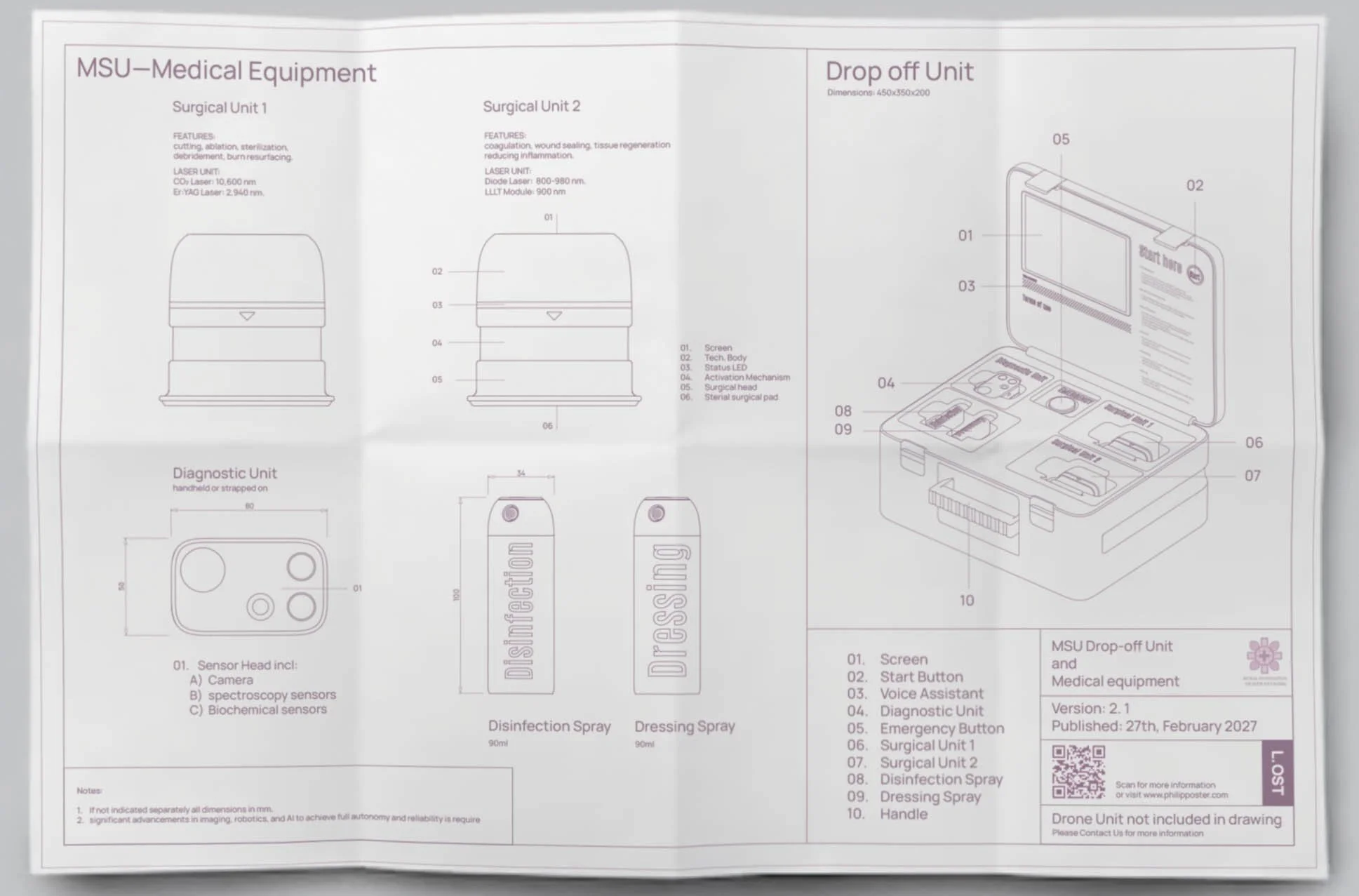Drone-Delivered Micro Surgery Units Transform Rural Healthcare
Author:
Philipp OsterYear:
2028Status:
CompletedClient:
The future-
The purpose of this project is to explore potential realities by designing scenarios, objects, products, services or systems from the near future. It’s meant to trigger conversation and spark discussion about, how a potential future could look like.
In a quiet meadow just outside the small village of Greenhaven, a child plays with her dog, laughing as the wind rustles through the tall grass. Suddenly, a sharp yelp pierces the air—a broken piece of fencing has left the girl with a deep cut on her arm. In the past, such an injury in this rural setting might have required a time-consuming trip to the nearest city hospital, but not anymore.
Within minutes, a drone descends from the sky, carrying a Micro Surgery Unit (MSU)—a revolutionary healthcare solution that is reshaping how rural communities access medical treatment.
Immediate, Precise Care
The MSU drone, dispatched via the village's healthcare app, carries a compact surgical pod equipped with AI-driven robotic tools, sterilization systems, and diagnostic sensors. Once it lands, the unit provides clear, step-by-step instructions, displayed on its screen, to guide a trained first responder—or even the injured person themselves—through the treatment process. For the young girl, this means her wound is cleaned, stitched, and dressed in under 20 minutes, all without needing to leave her village.
“The beauty of the MSU is its simplicity,” says Dr. Elena Torres, head of the Rural Innovation Health Network. “It focuses on reliability, and uses proven methods that anyone can use with minimal guidance, ensuring safe outcomes for common injuries.”
Solving Rural Healthcare Challenges
For decades, rural communities have struggled with limited access to healthcare services. Clinics were sparse, emergency response times were long, and residents often faced financial and logistical barriers to care. The introduction of MSUs addresses these issues head-on:
Accessibility: MSUs are dispatched via autonomous drones, capable of reaching the most remote areas within minutes.
Cost-Effectiveness: Utilizing mainly automated processes, MSUs significantly reduce the costs associated with traditional healthcare infrastructure.
Quality of Care: Advanced sensors and robotic precision ensure the effectiveness of the treatment.
Driving Down Healthcare Costs
The economic implications of MSUs are profound. By preventing minor injuries from escalating into major health issues, these units reduce the burden on hospitals and emergency services. Routine injuries, such as cuts, sprains, or minor burns, can now be treated locally at a fraction of the cost.
Moreover, MSUs are part of a broader movement toward preventative care. Integrated with wearable health devices, these units receive real-time alerts about patients' health, enabling proactive treatment before conditions worsen. This system reduces the overall strain on healthcare systems while improving outcomes for individuals.
A New Era of Healthcare Innovation
MSUs are just one component of the broader transformation in rural healthcare. Alongside telemedicine services, AI health assistants, and drones delivering medications, these technologies are creating a seamless ecosystem of care. Residents of rural areas no longer need to choose between the serenity of nature and access to modern medical advancements.
For Greenhaven resident Tom Harper, a retired teacher, the changes are life-changing. “I used to worry about what would happen if I had a health emergency,” he says. “Now, whether it’s a small injury or a serious condition, help is just a drone away.”
“This isn’t just about convenience; it’s about equity, Every person deserves access to high-quality medical care, regardless of their location.”
Dr. Elena Torres—Head of Rual Innovation Health Network
Looking Ahead
As we can see an increase in decentralisation all across europe, technologies like MSUs are bridging the gap between urban and rural living. The benefits of rural life are no longer hindered by a lack of essential services. Instead, innovation in different sectors is growing from the ground up, ensuring that societies connection to nature is matched by its commitment to well-being.





